50 protesters dressed as William Shakespeare marched against Northern Ballet’s plans to axe musicians’ jobs from June, ahead of a performance of Romeo and Juliet at London’s Sadler’s Wells
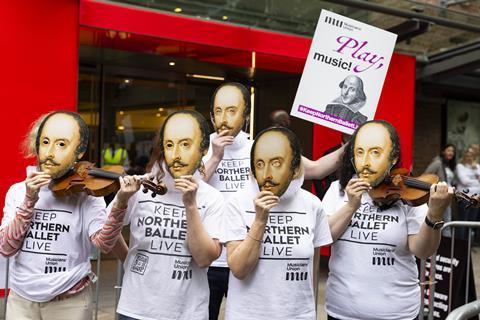
Read more news stories here
On Tuesday 28 May, an army of over 50 protesters dressed as William Shakespeare marched on London’s Sadler’s Wells theatre in a bid to stop Northern Ballet’s live orchestra from being axed.
Under current plans, Northern Ballet will replace the musicians in its orchestra with recorded music for its touring productions. The protest coincided with the first performance of Northern Ballet’s production of Romeo and Juliet at London’s Sadler’s Wells. No performances of the production will be accompanied by live music after June.
The Musicians’ Union (MU), who organised the protest, are calling on Arts Council England and Northern Ballet to agree to a realistic funding solution that protects jobs and enables theatre goers to enjoy the full ballet experience every time.
With Romeo and Juliet being the first Northern Ballet production affected, protesters donned Shakespeare masks and held placards declaring ‘O Live Music, Where Art Thou?’ and ‘Don’t let live music come to a Bard end’.
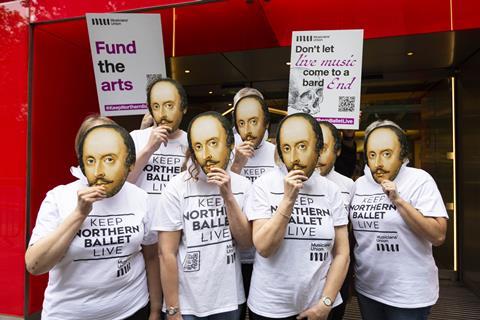
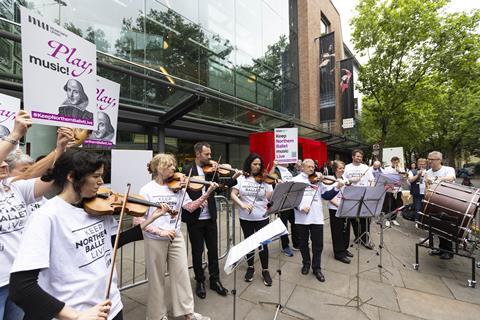
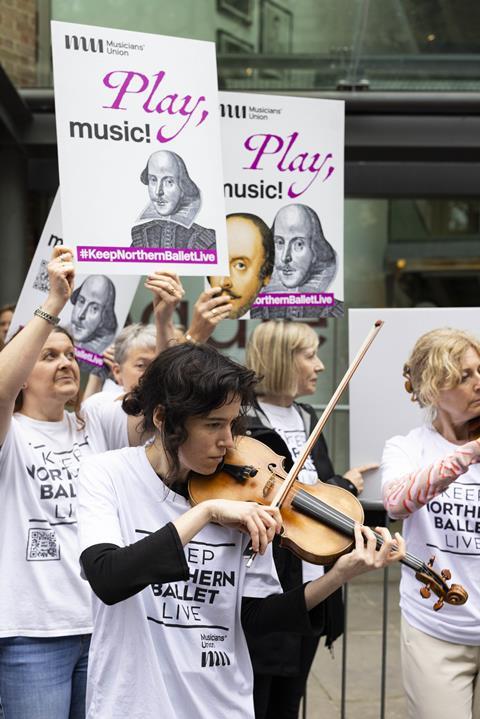
The core group of musicians for the Company, Northern Ballet Sinfonia, have been campaigning since the autumn to protect their jobs and to raise public awareness of their plight. Unlike other Northern Ballet employees, the musicians are on freelance contracts and with these changes affecting their job security, with some now even relying on food banks to survive.
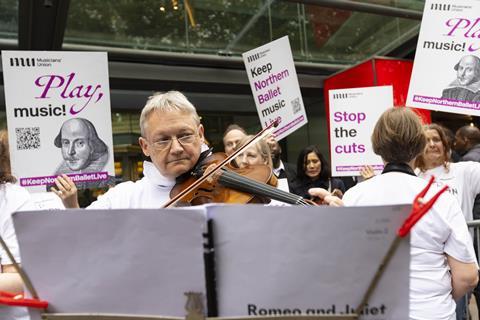
Over 18,000 people have already signed Northern Ballet Sinfonia’s petition to keep Northern Ballet live with musicians around the world also sharing photos and messages of support, using the hashtag #KeepNorthernBalletLive.
Commenting on the demonstration, Naomi Pohl, general secretary of the MU, said: ’[The] protest is a statement that we will continue applying pressure until Northern Ballet and Arts Council England agree a realistic funding solution, that protects jobs and keeps live music at the heart of Northern Ballet productions.
’Musicians’ livelihoods are on the line – with our data showing that musicians, on average, make £20,000 a year, you can imagine that any negative impact on this income is felt very heavily. It impacts their ability to provide for themselves, their families, and their capacity to invest in their art.
’The fear is that this cut is a slippery slope and a recording being used in place of the company’s orchestra is a precedent our members won’t tolerate. It isn’t a position we want to be in, we understand the company needs more financial support, and urgently.
’With a general election announced, this is a key moment for us to make our case and ensure the arts are prioritised in any new government’s recovery plan.’
Members from Northern Ballet’s orchestra, alongside the MU, are calling on the public to take a stand with musicians who are fighting to protect their jobs and save live music.
View and sign the petition here.
Read: ‘We refuse to give up’: fury as Northern Ballet replaces live musicians with recordings
Read more news stories here
The number one source for playing and teaching books, guides, CDs, calendars and back issues of the magazine.
In The Best of Technique you’ll discover the top playing tips of the world’s leading string players and teachers. It’s packed full of exercises for students, plus examples from the standard repertoire to show you how to integrate the technique into your playing.
The Strad’s Masterclass series brings together the finest string players with some of the greatest string works ever written. Always one of our most popular sections, Masterclass has been an invaluable aid to aspiring soloists, chamber musicians and string teachers since the 1990s.
American collector David L. Fulton amassed one of the 20th century’s finest collections of stringed instruments. This year’s calendar pays tribute to some of these priceless treasures, including Yehudi Menuhin’s celebrated ‘Lord Wilton’ Guarneri, the Carlo Bergonzi once played by Fritz Kreisler, and four instruments by Antonio Stradivari.

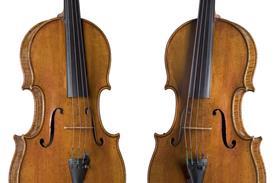


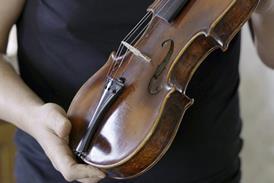




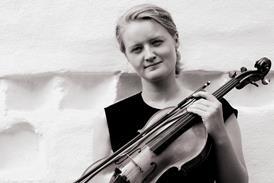



























No comments yet